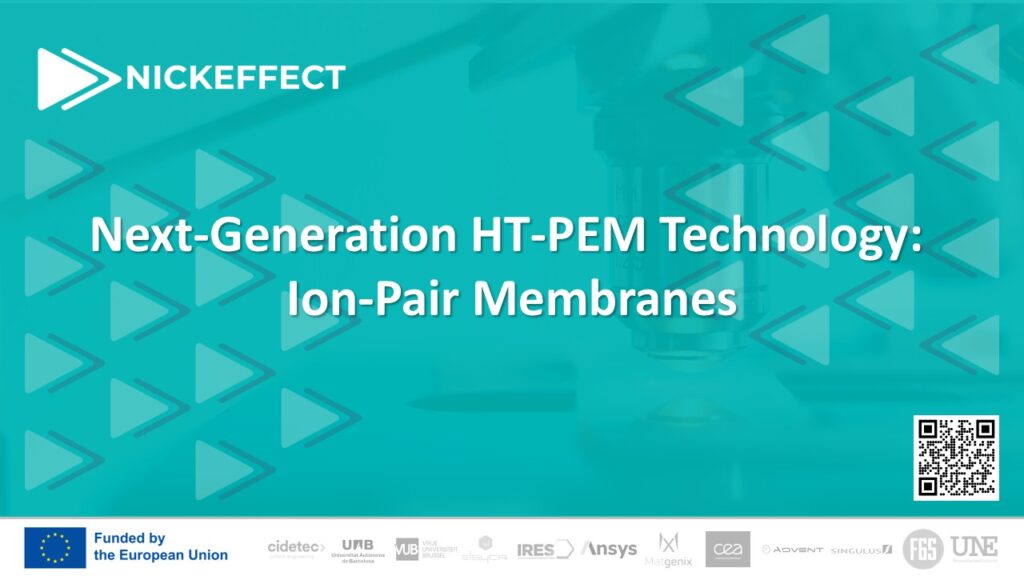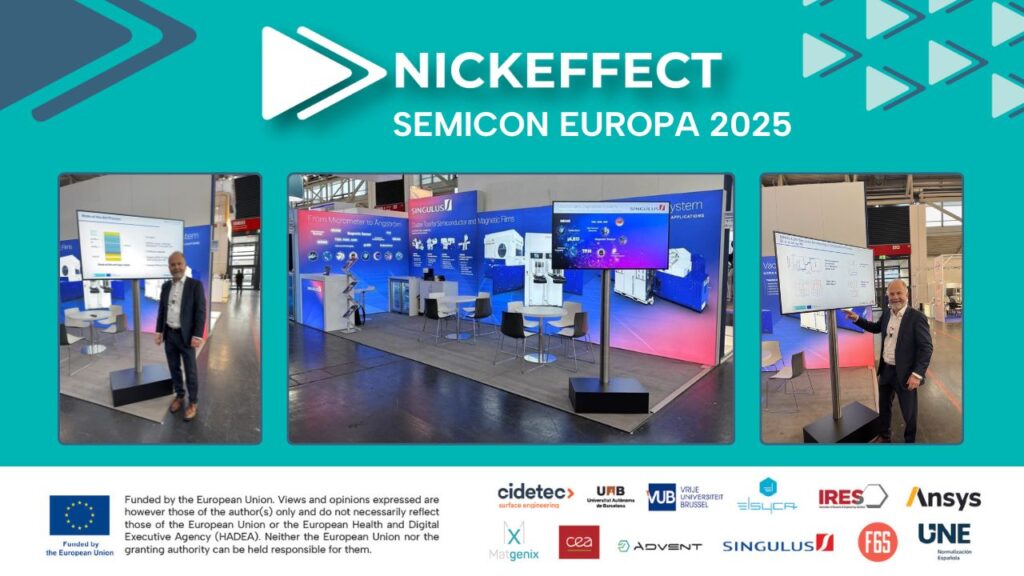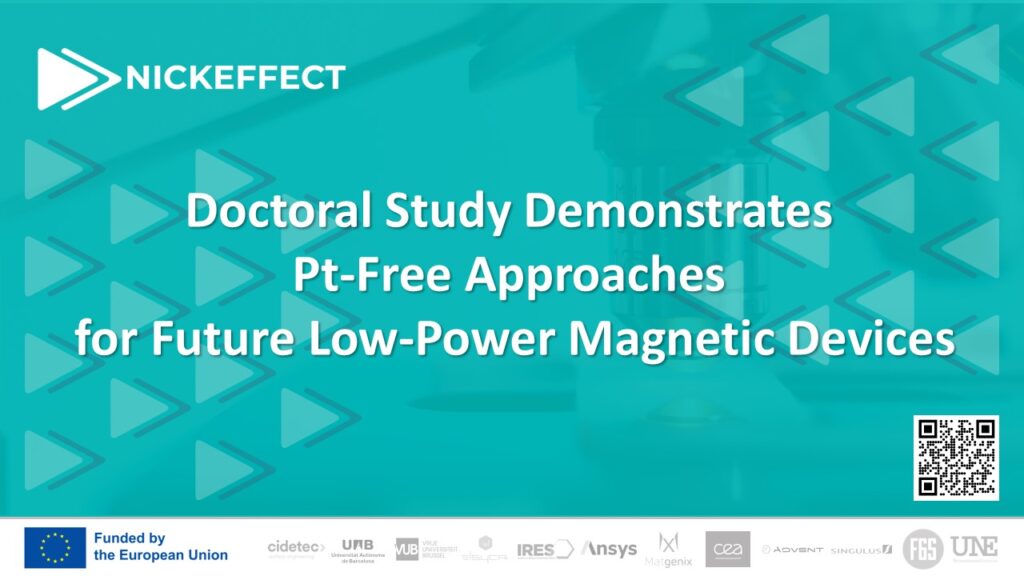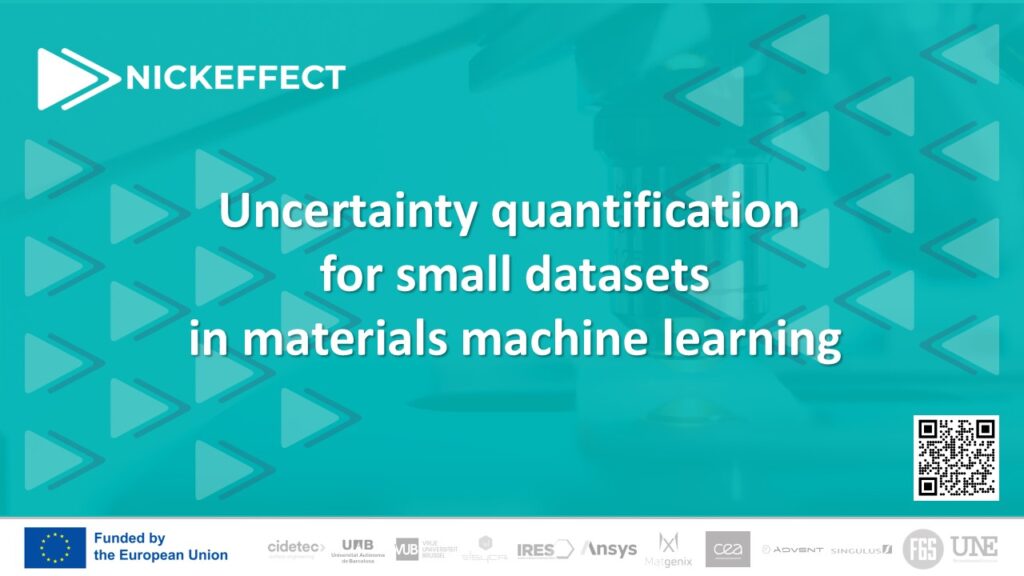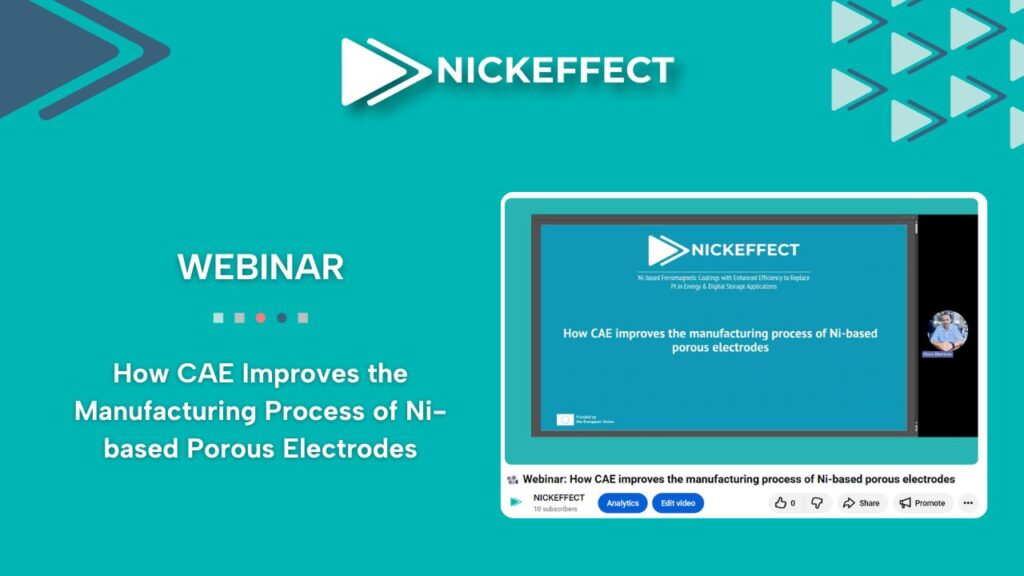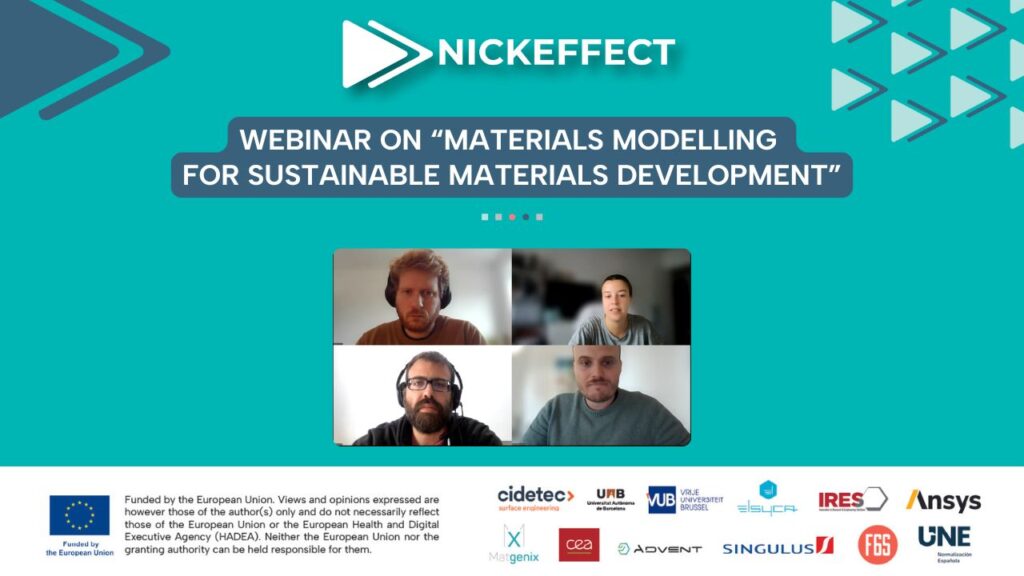Tag: Hydrogen
The NICKEFFECT project highlights a transformative leap in fuel cell efficiency through Advent Technologies’ Ion-Pair™ HT-PEM MEAs. Developed in collaboration with Los Alamos National Laboratory, this next-generation technology overcomes the thermal and durability limitations of traditional systems by utilizing a unique bond between charged polymers and phosphoric acid. Capable of operating across a wide temperature range and delivering significantly higher current densities, these membranes enable compact cooling architectures and simplified thermal management. This breakthrough is set to redefine high-power applications in aviation, marine, and heavy-duty transport, providing a robust, lightweight, and durable solution for the global transition to sustainable energy.
The NICKEFFECT project, represented by partner Singulus Technologies AG, successfully exhibited its cutting-edge advancements at SEMICON Europa 2025 in Munich, focusing on green and sustainable data storage. Aligned with the event’s theme of European economic resilience, the exhibition highlighted the latest results on Platinum (Pt)-free, non-volatile MRAM stacks, a key development in reducing reliance on critical raw materials. Product Manager Matthias Landmann shared these innovative process developments at the Singulus stand, underscoring the project's commitment to enabling a technologically advanced and environmentally sustainable future for the microelectronics industry.
A significant breakthrough from the NICKEFFECT consortium, led by researcher Aitor Arredondo of the UAB, demonstrates a promising path toward future low-power magnetic devices by eliminating the need for expensive and scarce Platinum Group Metals (PGMs). His doctoral thesis, "Oxygen Magneto-Ionic Effects in NiCo-Based Structures," focuses on magneto-ionics, a novel technique that uses small voltages to move ions—like oxygen—within a material, thereby controlling its magnetic behavior without high electric currents. This shift to Pt-free Ni/Co multilayers offers a dramatic reduction in energy consumption for devices like next-generation MRAM, aligning with Europe's goal to reduce reliance on critical raw materials and champion energy-efficient technologies for data-intensive applications such as AI and neuromorphic computing.
For machine learning (ML) in high-tech materials development, where high-quality experimental datasets are typically small (hundreds of samples), developing reliable models requires specialized techniques like Uncertainty Quantification (UQ). UQ focuses on making a model "know what it doesn't know" by requiring it to predict not just the material property, but also its confidence level in that prediction. A common approach to achieve this is ensembling, where multiple models are trained slightly differently, and the standard deviation of their individual predictions is used as the measure of uncertainty. This uncertainty is critical because it allows for strategic post-processing, such as filtering out highly uncertain predictions (a process known as sparsification) to significantly reduce the overall prediction error, thereby enabling high-accuracy predictive modeling of new materials despite the constraints of limited data.
NICKEFFECT latest technical webinar, “How CAE Improves the Manufacturing Process of Ni-based Porous Electrodes”, presented by project partner Elsyca, offered a deep dive into the critical role of Computer-Aided Engineering […]
The joint “Materials Modelling for Sustainable Materials Development” Webinar, hosted by NICKEFFECT and FreeMe on October 22nd, successfully demonstrated how advanced computational tools are rapidly accelerating the creation of sustainable […]

